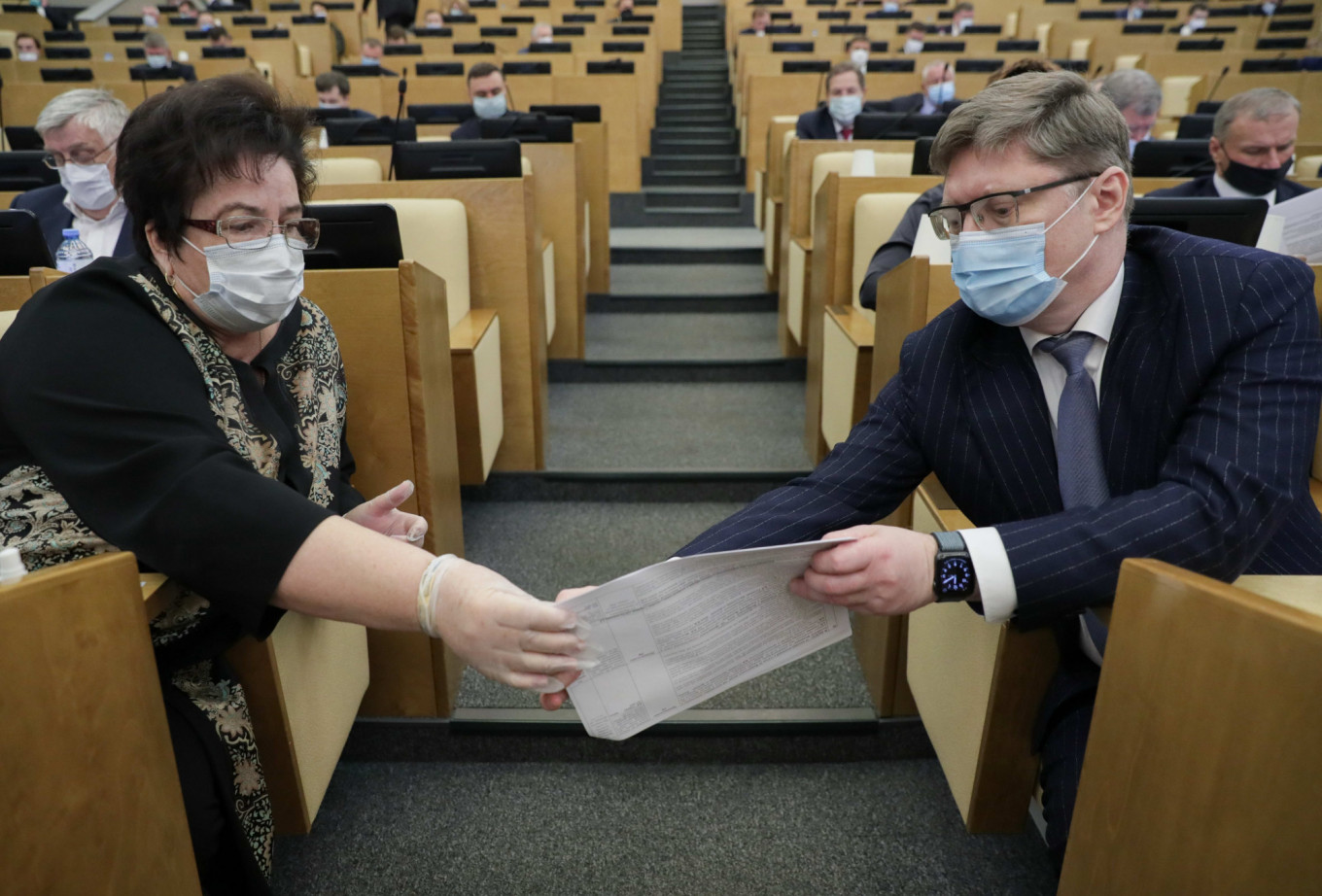
Russian lawmakers on Tuesday passed in its first reading controversial draft legislation including an expansion of who can be labeled a “foreign agent” amid an unrelenting clampdown on dissent.
Lawmakers in Russia’s lower-house State Duma last month tabled legislation that would give authorities sweeping powers to designate individuals as foreign agents and further limit public gatherings and content posted online.
Critics say the bill is meant to further clamp down on dissent and pile more pressure on the opposition ahead of next year’s parliamentary elections.
A law was first passed in 2012 giving authorities the power to brand NGOs and media organizations as foreign agents, a term that has Soviet-era undertones.
If they receive money from abroad these groups must register with the Justice Ministry, label publications with the tag and submit detailed paperwork or face fines.
The law has widened in scope in the years since, most significantly last year when it was expanded to include individual journalists and bloggers.
Under the proposed new changes, any individual could be deemed a foreign agent if they receive any material or monetary support from abroad, or from organizations already deemed foreign agents.
The law would also ban those individuals from holding municipal government positions.
Experts say that the language of the legislation is so broad that support from overseas could mean simply attending an event organized by a group with foreign funding.
The bill must pass three readings by the Duma and an upper-house Federation Council vote, as well as obtaining President Vladimir Putin’s signature, to become law.
